TRANSFER GUIDE

University of Colorado Boulder


University of Colorado Boulder
At CU Boulder, you can gain a hands-on education, network with industry professionals and create a customized education that will set the foundation for your career. Join our inclusive, collaborative and forward-thinking community.
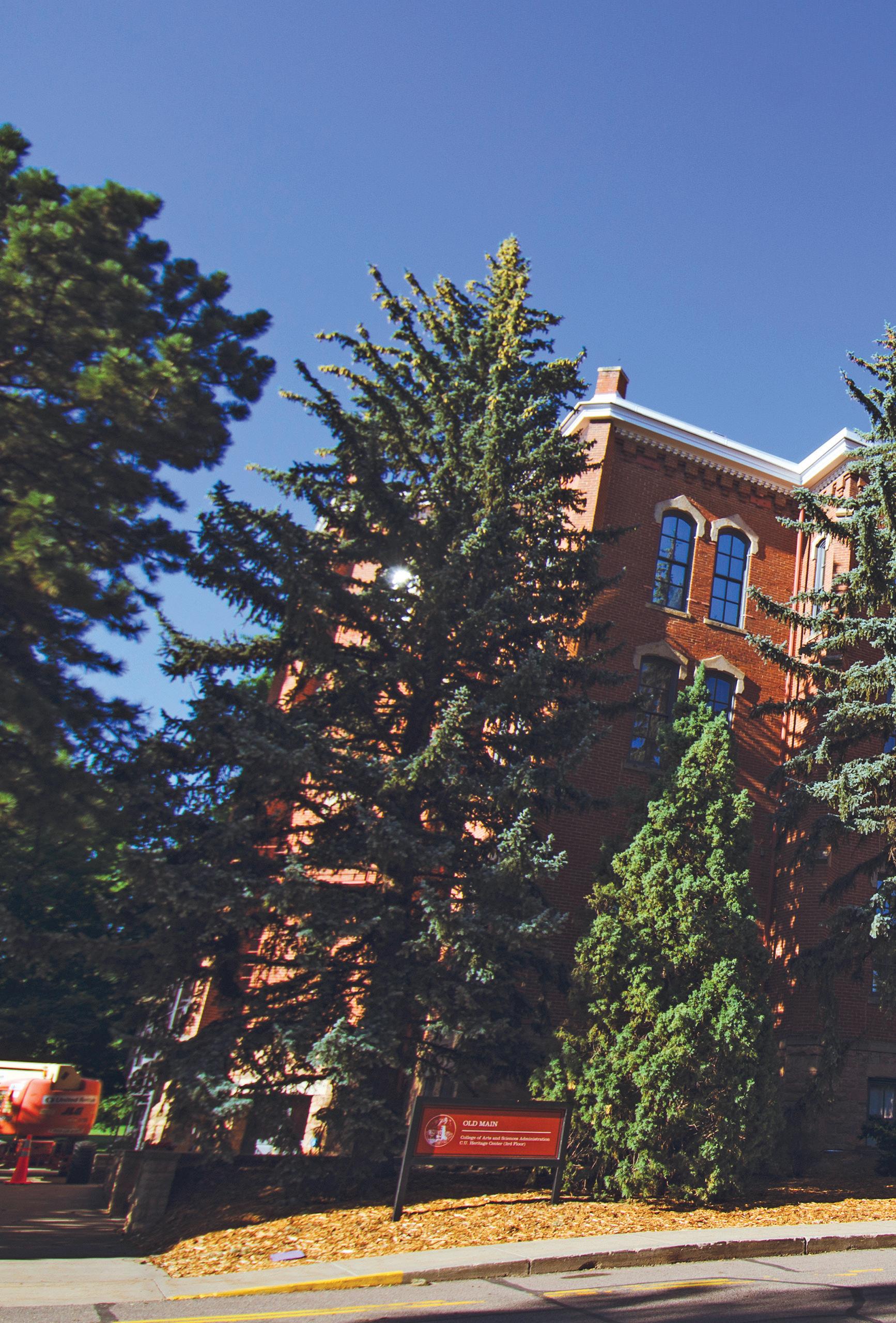
Here, you can fulfill your personal potential.
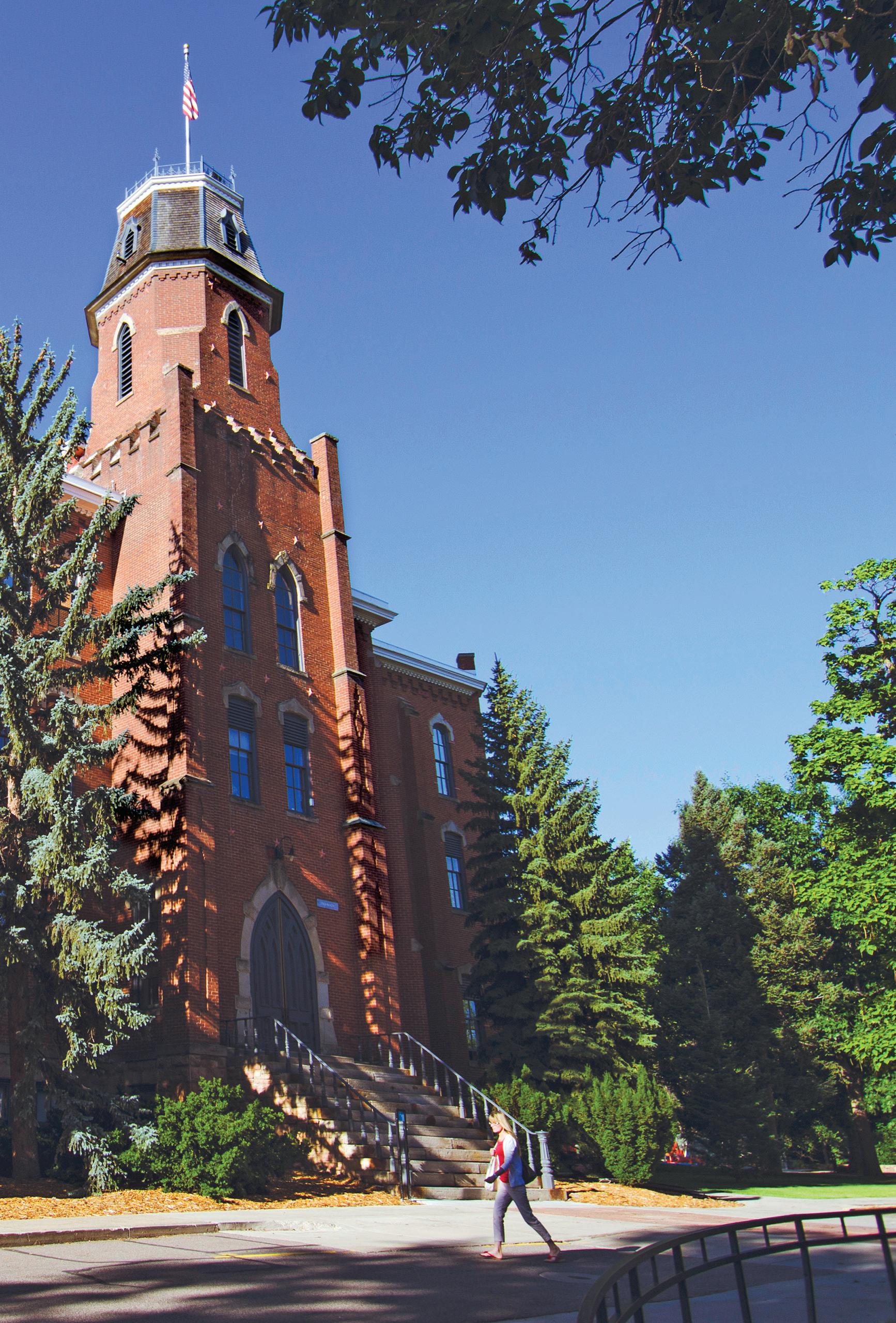
5,160+ courses offered in 273 fields of study
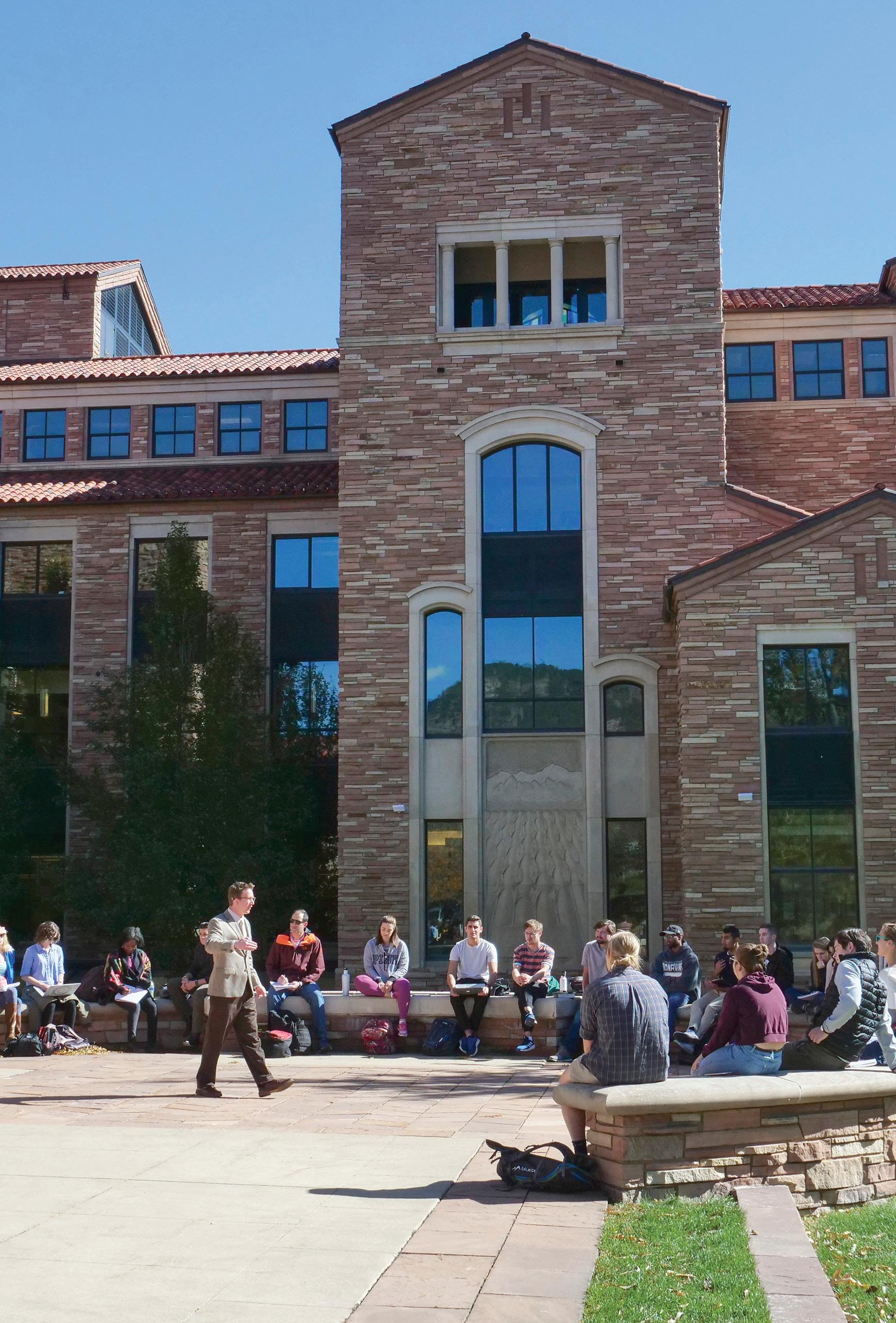
Top 3% 5
Nobel Prize winners among world universities
(Academic Ranking of World Universities, 2023)
19:1 student-tofaculty ratio

At CU Boulder, we have an outstanding, collaborative environment among faculty and students across different departments and programs.
Your major is your primary field of study. We offer more than 270+ bachelor’s, master’s and doctoral degree programs.
A minor is an optional, secondary field of study that you can add once you have declared a major. We offer more than 70 minors.
A certificate is also optional and can be added once you have declared a major. We offer more than 120 graduate and undergraduate certificates.
A double degree can be two different degrees from the same college or school, or two degrees from different colleges or schools.
Bachelor’s-accelerated master’s
Bachelor’s-accelerated master’s degrees are five-year combined bachelor’s and master’s degree programs. We offer more than 50 concurrent degree options.
Students interested in medicine or law can pursue any major at CU Boulder while receiving professional advising for their intended field of interest. Preprofessional advisors are available to help you explore law, medicine or other health programs and will help you prepare for law school or a health-care-related professional school. We recommend choosing a major that you are interested in—ideally one that you are passionate about—because, while your major does not affect your chances of admission to a professional program, how well you do and the grades you earn do affect your chances.
All students major in business administration with an emphasis in one of the areas listed below.
Business Administration*
Accounting
Business Analytics
Finance
Management & Entrepreneurship
Marketing
Real Estate
Business Open Option/Undecided
Program in Environmental Design
Through the majors below, students work toward a Bachelor of Environmental Design.
Architecture
Environmental Product Design
Landscape Architecture
Sustainable Planning & Urban Design
Environmental Design Open Option/Undecided
Majors listed below lead to teacher licensure in addition to a bachelor’s degree.
Elementary Education* (K–6 licensure)
Middle & High School Teaching (7–12 licensure in English, Mathematics, Science, Social Studies or Spanish. Requires second major in a related content area.)
Non-licensure majors leading only to a bachelor’s degree
Education Studies
Leadership & Community Engagement
College of Arts and Sciences
Anthropology*
Art History*
Art Practices*
Asian Studies
Astrophysical & Planetary Sciences
Atmospheric & Oceanic Sciences
Biochemistry
Chemistry*
Chinese
Cinema Studies and Moving Image Arts
Classics
Dance*
Ecology & Evolutionary Biology
Economics*
English*
Environmental Studies
Ethnic Studies
French*
Geography*
Geology*
German Studies
History*
Humanities
Integrative Physiology
International Affairs
Italian Japanese
Jewish Studies
Linguistics
Mathematics*
Molecular, Cellular & Developmental Biology
Neuroscience
Philosophy*
Physics*
Political Science*
Psychology*
Public Health
Religious Studies
Russian, Eastern European & Eurasian Studies
Sociology*
Spanish*
Speech, Language & Hearing Sciences
Statistics & Data Science
Theatre*
Women & Gender Studies
Arts & Sciences Open Option/Undecided
College of Music
Arts in Music*
General
Emphasis in Musicology and World Music
Emphasis in Music Production
Music
Brass & Percussion
Composition
Jazz Studies
Musical Theatre
Musicology
Piano & Keyboard
Strings
Voice
Woodwinds
Music Education
College of Media, Communication and Information
Communication*
Information Science
Journalism*
Media Production
Media Studies
Strategic Communication
College of Engineering
and Applied Science
Aerospace Engineering Sciences
Applied Mathematics
Architectural Engineering
Biological Engineering
Biomedical Engineering
Chemical Engineering
Civil Engineering +
Computer Science, BA*
Computer Science, BS
Creative Technology & Design
Electrical and Computer Engineering +
Electrical Engineering
Engineering Physics
Environmental Engineering
Integrated Design Engineering
Mechanical Engineering +
Engineering Open Option/Undecided
+ Denotes engineering partnership programs with Colorado Mesa University and Western Colorado University. colorado.edu/engineering/ university-partnerships
Students may apply directly to this CU Boulder program. Within the program, students discover and pursue the countless options offered at CU Boulder as they develop their own unique academic path. Students in the Program in Exploratory Studies work with a group of highly skilled advisors and coaches to set academic goals and explore their various interests.
Exploratory Studies/University-wide Open Option/Undecided
*Denotes a statewide Degree with Designation for Colorado community college students.
Explore how to customize your education with majors, minors, certificates, double degrees and bachelor’s-accelerated-master’s degrees: colorado.edu/academics
For F-1 visa students, CU Boulder offers STEM Optional Practical Training (OPT) extension-eligible degrees. To learn more about STEM OPT, please visit bit.ly/custemopt.
5,800+ CU Boulder undergraduates are transfer students
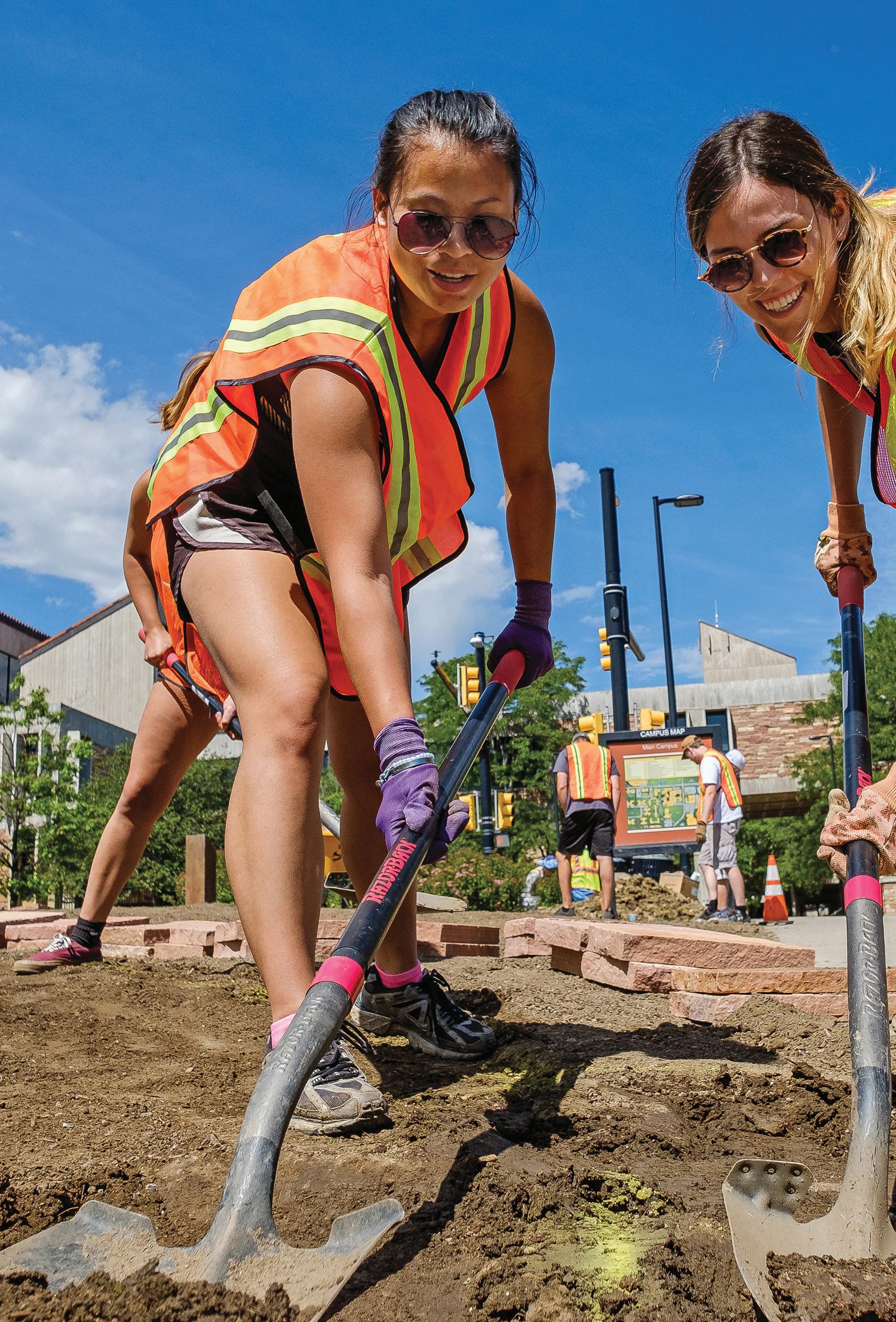
425+ 27%
U.S. students of color at CU Boulder in the 2023–24 academic year
2,500+ international undergraduate students from 100+ countries
Education Abroad programs in 65+ countries

Our students dream big and discover ways to combine their skills and interests. Many CU Boulder students become involved in organizations that make a positive impact and also provide them with a close community of friends.
4,630+ students participate in intramural sports
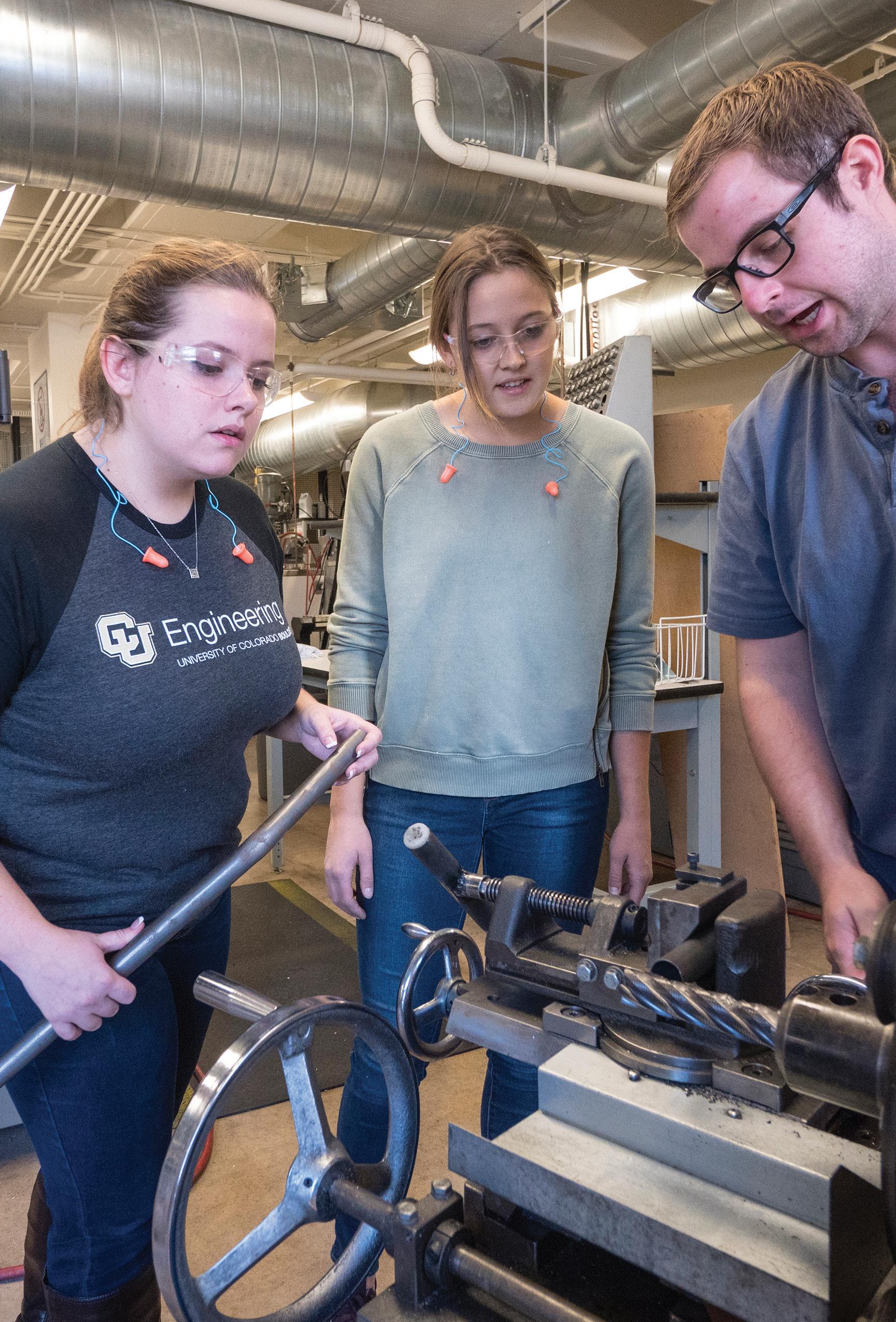
student clubs and organizations 450+
14,400+ hours of work done each year through the Volunteer Resource Center
14 campus affiliates in the CU LEAD Alliance program, encouraging learning communities with inclusive excellence

We know that the college experience happens both inside and out of the classroom. We offer many involvement opportunities so students can make new connections and explore their passions.
$143,200 median CAREER salary of students with bachelor’s degrees of graduates were employed, in graduate school or the military six months after graduation of CU Boulder graduates are accepted into their first-choice graduate school 83% 88%

$73,700 median EARLY-CAREER salary of students with bachelor’s degrees

We value each of our students’ individual career ambitions, which is why we collaborate closely with our students to help prepare them to reach their professional goals.
Each year, more than half of domestic CU Boulder students apply for and receive some form of aid. We suggest you research opportunities and apply early! You do not need to be admitted to apply for scholarships and financial aid. colorado.edu/financialaid
Estimated annual costs shown here are based on 2024–25 rates for one academic year (fall and spring). Undergraduate tuition is guaranteed not to change for four years, keeping costs predictable for you and your family. Tuition is determined by residency classification and area of study. Tuition tiers reflect the cost of instruction for each area. The base tuition rate (the first tier) is for studies in Arts and Humanities, Social Sciences, Education, Music, Open Option in Arts and Sciences, and the Program in Exploratory Studies. Tier 2 tuition is for Environmental Design and Media, Communication and Information programs. Tier 3 is for Engineering and Applied Science and Natural Sciences, and Tier 4 tuition is for Business. For the most current costs, visit colorado.edu/bursar. Individual costs may vary and rates may be subject to change.
Tuition, fees, on-campus housing and food, and books/supplies are billed by the university and are just one part of the overall cost to attend CU Boulder. The full cost of attendance for an academic year may also include expenses that are not billed by the university, such as off-campus housing, personal expenses, transportation and medical insurance. View budget examples at colorado.edu/financialaid/cost/example-aid, and learn more about what makes up the full cost of attendance at colorado.edu/understand-your-cost-attendance.
Tuition & fees: $43,624
Books & supplies: $1,200
Tuition & fees: $47,172 Tuition & fees: $45,568 Tuition & fees: $47,522
Books & supplies: $1,200
$46,768
Books & supplies: $1,200
Total: $44,824 Total: $48,372
Books & supplies: $1,200
$48,722
& fees: $47,512
& fees: $49,572 Books & supplies: $1,200 Books & supplies: $1,200 Books & supplies: $1,200 Books & supplies: $1,200 Total: $46,878 Total: $50,306
$48,712
$50,772
Colorado residents with a family income of $65,000 or less may be eligible for CU Promise, a grant program that covers the cost of tuition and fees. To be considered, you must apply for financial aid each year. colorado.edu/financialaid/types-aid/ cupromise
If you are a veteran or a family member of a veteran, you might be eligible for federal education benefits, including the Yellow Ribbon program, as well as in-state tuition status. Contact the Office of Veteran and Military Affairs for more information. colorado.edu/veterans
CU Boulder Transfer Excellence scholarship
To be automatically considered for the Transfer Excellence scholarship, you must complete your admission application by the application deadline. For more information: colorado.edu/scholarships/ transferexcellence
The University of Colorado Boulder offers additional scholarships for transfer students through the CU Boulder Scholarship Application. To gain access to the scholarship application, you must first submit an admission application. You do not need to be admitted to apply for scholarships. All transfer-specific scholarships have a deadline of June 15; however, there are many nontransfer-specific awards for which transfer students may apply, and those have earlier deadlines. Please contact the Office of Financial Aid for more information. colorado.edu/scholarships

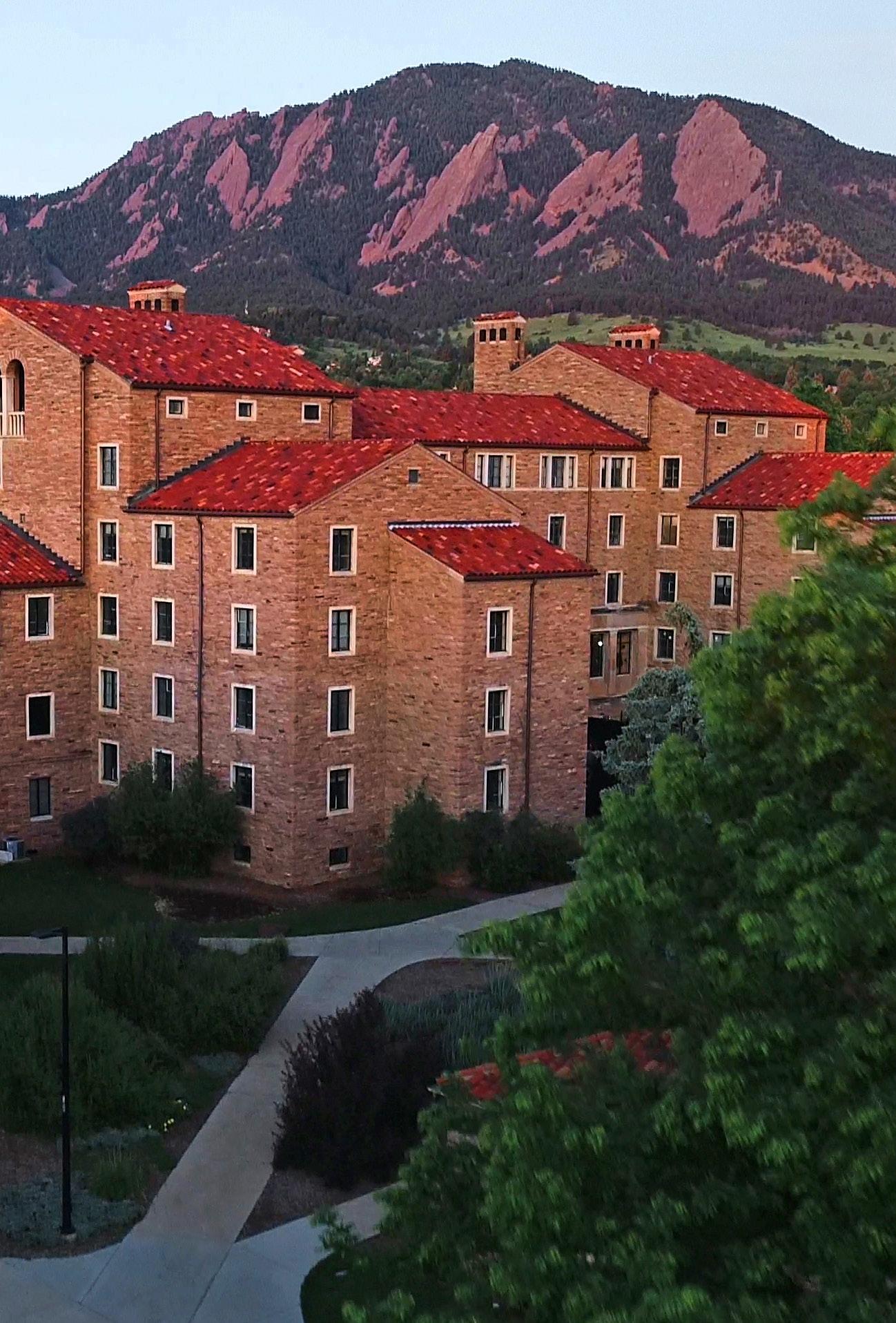
As a transfer student, you have access to on- and off-campus housing options, as well as the option to purchase an on-campus meal plan so you can dine in CU Boulder’s dining centers.
On-campus housing has limited options for transfer students. Transfer students who do live on campus live in apartment-style housing. colorado.edu/living
The Transfer Buffs Living Learning Community (LLC) offers incoming transfer students the unique opportunity to live on campus and connect with students who have similar experiences as themselves. New, incoming transfer students will initially apply to a waitlist, as space is limited in this LLC. colorado.edu/transfer/transfer-buffs-llc
The Office of Off-Campus Housing & Neighborhood Relations is available to help you find an off-campus housing option that works best for you. They’ll even help you find a roommate! colorado.edu/offcampus
Review admission prerequisites. Knowing what is required to transfer can help you map an appropriate academic schedule for your remaining terms at your current school. colorado.edu/admissions/process/transfer/admissions-criteria
Transferology account. Transferology allows you to review which courses will transfer to CU Boulder. Transfer credits must be academic in nature, not technical or remedial, and completed at a C- or higher grade. transferology.com/school/colorado
Connect with your admission counselor. Learn about the application process with a transfer admission appointment. colorado.edu/admissions/connect/find-your-counselor
Complete your CU Boulder Transfer Application.
1. Provide one academic interest response.
2. Send us your transcripts from high school/secondary school and college. We accept unofficial and official documents during the application process. If you submit unofficial documents, gain admission to CU Boulder and choose to attend, we will require official transcripts upon enrollment.
3. Application fee ($65 domestic, $70 for international students, fee waivers available)
ACT or SAT scores are not required for transfer students, but you may provide self-reported scores if you have completed fewer than 24 post-high-school semester credit hours and would like us to take your scores into consideration when reviewing your application.
Receive an admission decision update 4–6 weeks after submitting your completed application and all supporting materials. Admission decisions are made on a rolling basis.
Apply for financial aid and research housing options. If you have questions about next steps, visit our transfer timeline page. colorado.edu/admissions/process/transfer/timeline
October 1 Spring application deadline
March 15 Fall early notification & summer application deadline
June 1 Fall application deadline
For Music applicants, view the application instructions and deadlines here: colorado.edu/ music/admissions/prospective-undergraduate-students/application-instructions
Learn more about resources and international-specific requirements. colorado.edu/admissions/process/international

CU Boulder does not have a minimum transfer credit hour requirement. Because of this, transfer applicants will be reviewed for admission under one of two conditions:
• If you have completed 24 or more post-high-school semester credit hours, the admission committee will focus primarily on your college academic record.
• If you have completed fewer than 24 post-high-school semester credit hours, your college academic record and your high school record, or scores from a high school equivalency exam, will be evaluated for admission.
For admission criteria information including cumulative GPA, required courses, grades and performance, visit colorado.edu/admissions/process/transfer/ admissions-criteria

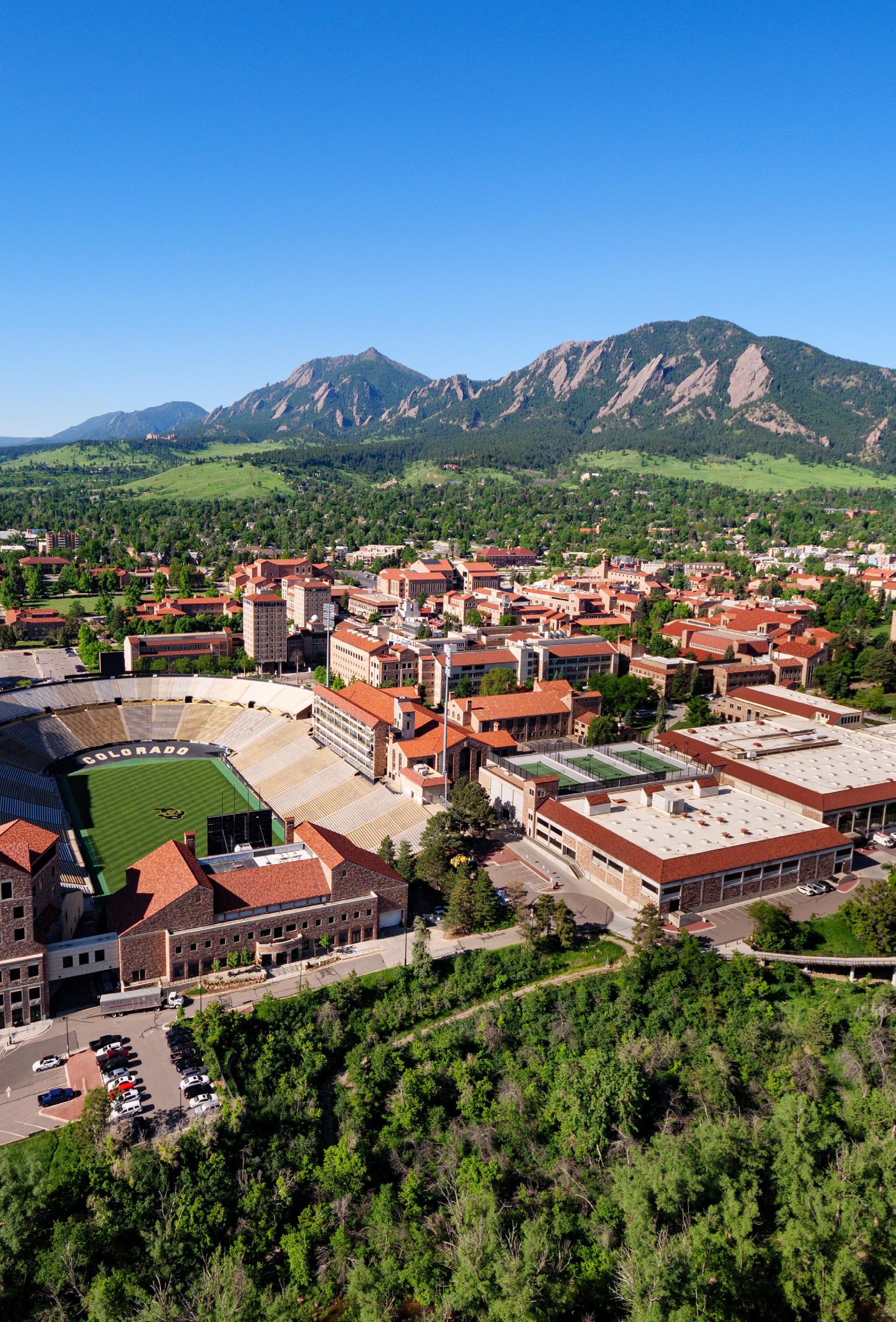
Take our virtual tour: bit.ly/virtualtourcu

Stay up to date on all of our in-person and virtual admission visit programs: colorado.edu/admissions/visit/transfer
As a student or prospective student at CU Boulder, you have a right to certain information pertaining to financial aid programs, the Clery Act, crime and safety, graduation rates, athletics, and other general information such as the costs associated with attending CU Boulder. To view this information online, go to colorado.edu/about/your-right-know.
The University of Colorado Boulder is committed to providing a welcoming and inclusive environment where all individuals can achieve their academic and professional aspirations free from discrimination, harassment, sexual misconduct or related retaliation for raising a concern. CU Boulder does not discriminate based on protected class, which includes race, color, national origin, sex, age, pregnancy, disability, creed, religion, sexual orientation, gender identity, gender expression, veteran status, political affiliation or political philosophy. All qualified individuals are encouraged to apply. Visit colorado.edu/oiec to learn more.
The information in this brochure was accurate at the time of printing (August 2024). All information is subject to change without notice.